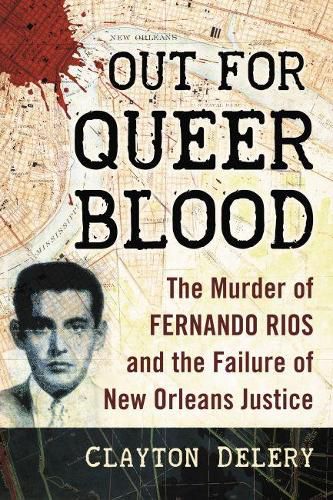Readings Newsletter
Become a Readings Member to make your shopping experience even easier.
Sign in or sign up for free!
You’re not far away from qualifying for FREE standard shipping within Australia
You’ve qualified for FREE standard shipping within Australia
The cart is loading…






This title is printed to order. This book may have been self-published. If so, we cannot guarantee the quality of the content. In the main most books will have gone through the editing process however some may not. We therefore suggest that you be aware of this before ordering this book. If in doubt check either the author or publisher’s details as we are unable to accept any returns unless they are faulty. Please contact us if you have any questions.
On a September night in 1958, three New Orleans college students decided to entertain themselves in the French Quarter by rolling a queer and went looking for a gay man to assault. They chose Fernando Rios, a tourist from Mexico, who died from the beating he received. In perhaps the earliest example of the gay panic defense, the three defendants argued that they had no choice but to beat Rios because he had made an improper advance. When the jury acquitted them, the courtroom cheered. The author examines the murder and the trial in detail, and chronicles a time and place in American history where such a crime was inevitable.
$9.00 standard shipping within Australia
FREE standard shipping within Australia for orders over $100.00
Express & International shipping calculated at checkout
This title is printed to order. This book may have been self-published. If so, we cannot guarantee the quality of the content. In the main most books will have gone through the editing process however some may not. We therefore suggest that you be aware of this before ordering this book. If in doubt check either the author or publisher’s details as we are unable to accept any returns unless they are faulty. Please contact us if you have any questions.
On a September night in 1958, three New Orleans college students decided to entertain themselves in the French Quarter by rolling a queer and went looking for a gay man to assault. They chose Fernando Rios, a tourist from Mexico, who died from the beating he received. In perhaps the earliest example of the gay panic defense, the three defendants argued that they had no choice but to beat Rios because he had made an improper advance. When the jury acquitted them, the courtroom cheered. The author examines the murder and the trial in detail, and chronicles a time and place in American history where such a crime was inevitable.